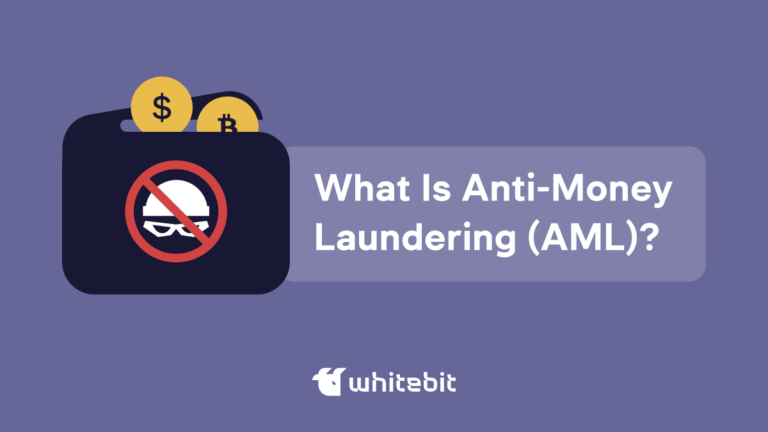How to Get a Crypto License in 2024

Content
Securing a crypto license is your gateway to legitimacy in the digital currency market. If you’re looking to establish a legal base in this innovative sector, understanding crypto regulation is your first crucial step.
Let’s learn the practical steps of acquiring the license to transform your crypto business from a bold idea into a unit in the global digital economy.
What Is a Cryptocurrency License?
A cryptocurrency license is an official permit issued by regulatory authorities that enables a company to conduct legal activities in the crypto market, such as trading, exchanges, wallets, brokerage services, custody solutions, and mining operations.
It’s a testament to a business’s compliance with pertinent financial regulations and security standards.
Types of Crypto Licenses
The cryptocurrency industry is diverse, so there are different types of licenses tailored to specific services within the field. Each license has its own set of regulations and compliance standards that businesses must meet to operate legally.
- Broker License
A broker license is essential for companies acting as intermediaries in the buying and selling of cryptocurrencies for customers. Holders of this license must ensure they have the necessary risk management processes in place, adhere to market conduct rules, and report transactions in a manner consistent with financial regulations.
They often require proof of sufficient capital, sophisticated trading platforms, and transparent pricing mechanisms.
- Custody License
The custody license is for entities that hold and protect digital assets for their clients. This license is critical for maintaining the integrity and security of clients’ funds.
Businesses must demonstrate robust security protocols, including multi-signature wallets, cold storage options, and regular audits. They also must provide secure backup systems and contingency plans for potential breaches or losses.
- Mining License
A mining license may be required in certain jurisdictions for businesses involved in the validation of transactions on a blockchain network, known as mining.
While not as commonly regulated, the license may dictate the energy consumption standards, equipment compliance, and environmental impacts where required. Mining operations may also need to show how they handle the rewards and fees collected from mining activities.
- Money Transmitter License
Entities that need a money transmitter License are those that transfer cryptocurrency or convert it from crypto to fiat or vice versa. This license ensures that companies comply with AML and CTF standards.
Applicants must typically maintain a certain level of operating capital and bond requirements and demonstrate that they have internal policies in place for consumer protection.
- Wallet License
A wallet license is for businesses offering digital wallets to store and manage cryptocurrencies. Wallet providers must show that they can keep private keys safe and provide security against unauthorized access to funds.
They must also ensure the privacy of user data, potentially through encryption, and have measures in place for wallet recovery in the event of lost or forgotten keys or passwords.
Each of these licenses requires a thorough understanding of the specific regulatory environment and a business model that can adapt to meet these requirements. Companies looking to operate in multiple jurisdictions may need to obtain multiple licenses and continuously update their compliance procedures to align with local laws.
Benefits of Obtaining a Crypto Exchange License
Obtaining a cryptocurrency exchange license significantly enhances the credibility of a company. It demonstrates a commitment to legal operations, which can build trust with users, investors, and banks, potentially leading to increased user adoption and investment.
Licensed companies are recognized as compliant with AML, CTF, and KYC regulations. This compliance is crucial for operating in international markets and can provide a competitive edge over unlicensed competitors.
With a license, exchanges can expand their services into new jurisdictions with the legal backing required to operate. This opens up a broader customer base and can lead to increased market share.
A licensed exchange is more likely to attract institutional investors and high-net-worth individuals who prefer to engage with regulated entities to ensure the security of their investments. Banks are also more willing to provide services to licensed crypto businesses, as the crypto trading license guarantees the business’s legitimacy and compliance.
Challenges of Obtaining a Crypto Exchange License
The regulatory requirements for cryptocurrencies can vary significantly from one jurisdiction to another, making the process of obtaining licenses complex and requiring specialized legal expertise.
The cost of obtaining a crypto exchange license can also be substantial. It includes the licensing fees and expenses related to legal counsel, compliance officers, implementing technology solutions, and ongoing compliance costs.
Crypto exchanges must meet stringent compliance requirements, which may involve regular reporting, maintaining certain operational standards, and conducting external audits, adding to the operational workload.
A licensed exchange must also have a robust technology infrastructure to ensure the security and integrity of customer data and funds. This includes state-of-the-art cybersecurity measures, which can be costly to implement and maintain.
The process may require exchanges to restructure their operations to meet regulatory standards. This could involve changes in business models, staffing, customer onboarding processes, and transaction monitoring systems.
Overall, while the benefits of obtaining a license for cryptocurrency exchange are clear, the path to securing one is full of challenges that require careful planning, significant financial outlay, and a strong commitment to meeting and maintaining high standards of compliance and security.
Steps on Getting a Crypto Exchange License
Regulatory Jurisdictions
Identify a jurisdiction whose regulatory environment aligns with your crypto business’s goals. It should offer legal clarity, favorable tax conditions, political stability, and supportive policies for cryptocurrency operations.
Look for jurisdictions that have a history of supporting fintech companies and offering a sandbox environment to test new products under regulatory supervision.
Preparing for the Licensing Process
Undertake a thorough review to fully understand the regulatory requirements. Prepare all necessary documentation, such as a detailed business plan, financial projections, and policies for anti-money laundering and counter-terrorism financing that align with the regulatory expectations.
These policies should comply with local regulations and be strict enough to adapt to international standards, as crypto businesses often operate globally.
Creating a Business Entity
Form a legal entity in your chosen jurisdiction. It means setting up a company structure that complies with local corporate laws, including appointing directors and shareholders and setting up the necessary internal policies.
Creating a business entity requires careful planning to ensure that the governance structure supports the business’s operations and growth while satisfying the regulatory demands for transparency and accountability. Additionally, a legal entity must be prepared to maintain continuous compliance with evolving corporate regulations.
The Application Process
Gather all the required information and documentation to submit a comprehensive crypto licensing application. The application must detail the company’s ownership structure, operational model, risk assessment, technology stack, security protocols, and the management team’s credentials.
Regulatory bodies will scrutinize the application to assess the sustainability considerations of your exchange. It’s often advised to engage with regulatory bodies through pre-application meetings or consultations to clarify expectations and requirements.
Security and Compliance Measures
Establish a strong security infrastructure to protect your business and clients against cyber threats. Encryption protocols must be state-of-the-art, ensuring that all client data and transaction information are protected from unauthorized access.
In parallel, compliance protocols must be stringent and in line with the latest Anti-Money Laundering (AML), Counter-Terrorism Financing (CTF), and Know Your Customer (KYC) regulations. These protocols should be more than just policies on paper; they must be enacted with rigor and regularly updated to meet evolving legal standards.
Launch and Post-Launch Considerations
Launching your crypto exchange should be approached with a commitment to compliance and transparency. This means clear communication with clients about your operations, the security measures in place, and how their data and crypto assets are protected. It’s also vital to provide customers with easy access to support should they have any compliance-related inquiries or issues.
Once your exchange is operational, you must stay informed of regulatory changes that could impact your exchange’s operations. Maintaining your license in good standing is not a one-time effort but a continuous process that requires an ongoing review and adaptation of your policies and procedures.
Your exchange must meet the current standards and be prepared to evolve with the regulatory requirements to sustain a reputable and reliable platform for your users.
Conclusion
Getting a cryptocurrency license in 2024 involves strategic planning, understanding regulatory requirements, and ensuring strict security and compliance infrastructures.
Despite the challenges, the benefits of gaining a license for crypto exchange are manifold, providing a solid foundation for businesses to thrive in the burgeoning digital currency market.
FAQ
Selling cryptocurrency as an individual may not always require a license, especially for small amounts or through a regulated exchange. However, if you're operating as a business or offering services such as a wallet or a trading platform, many jurisdictions will require you to have a license. This is to ensure adherence to AML, CTF, and KYC regulations.
For individual traders using established platforms, a license is typically not necessary. However, the platform you use should be licensed and compliant with the regulatory requirements of the jurisdiction in which it operates. Always check the legal requirements of your country, as these can vary significantly.
Yes, operating a crypto exchange requires a license in most jurisdictions. This is to ensure that exchanges operate with transparency, integrity, and compliance with financial regulations, designed to protect consumers and prevent financial crimes.
A crypto license is generally required for businesses that provide services related to cryptocurrencies, such as exchanges, wallets, and financial services that involve cryptocurrencies. This includes companies offering trading services, payment processing, and custodial services.
To apply for a crypto license, you must choose a jurisdiction with a regulatory framework that fits your business model, understand and comply with its legal requirements, prepare all necessary documentation, and submit an application to the relevant authority.
The process involves thorough preparation, including drafting a detailed business plan, financial forecasts, and compliance measures with AML, CTF, and KYC regulations.
- What Is a Crypto Liquidity Provider And How Do They Work?
- What Is Crypto Market Making, and Who Are the Market Makers?
- All You Need to Know About WhiteBIT “Convert”. How to Use a Crypto Converter?
- What Is a Spread and Slippage in Crypto
- What is Crypto Technical Analysis? How to Analyze Price Movements in the Cryptocurrency Market?









